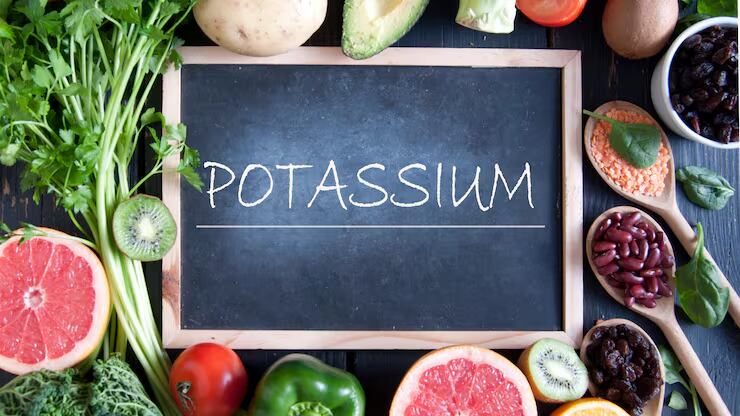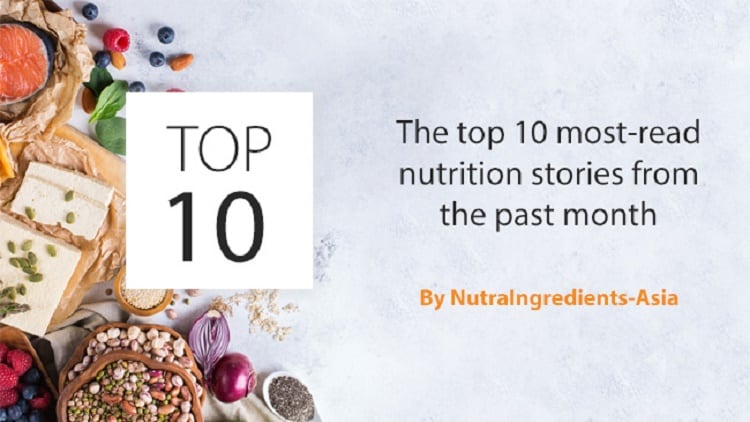Higher potassium intake at dinner linked to fewer sleep disturbances – Japan study

A Japanese study has shown how higher potassium intake, particularly at dinner time, could lead to better sleep quality.
The cross-sectional study was conducted based on data collected from Asken, a widely used Japanese food-logging mobile app. Information was collected from over 4,500 users aged 20 to 64.
Findings showed that total daily potassium intake was inversely associated with insomnia scores.
Nutra trends 2025: Five key consumer health trends set to drive APAC forward

We looked at five key consumer health trends that companies active in Asia-Pacific are focusing on for this year, and their reasons for doing so.
This year, personalised nutrition is set to reach new heights especially in South Korea with the official launch of the Customised Health Functional Food System right at the start of January.
Nutrition designed for supporting “health span” is also picking up momentum, with companies such as Amway China reiterating its goal in helping consumers achieve healthy life expectancy.
Thai FDA drafts new policies on health products import and export

Thailand’s Food and Drug Administration (FDA) has revealed plans to draft new legislations governing the import, export, and transit of health products, including health supplements.
The aim is to update existing legislations that have been in place for the past 40-odd years.
While promoting modern business operations, the Thai FDA also aims to improve health product laws in protecting consumer safety.
New nutra regulations that come into force in 2025: What you should know

Here is a round-up of new nutraceutical regulations that will be implemented in major APAC nutraceutical markets this year.
In Australia for example, supplements containing Garcinia gummi-gutta and ingredients that similarly contain hydroxycitric acid will need to warn consumers of liver harm risks on the product labelling from March 1.
In Japan, companies making Foods with Function Claims (FFC) will need to follow PRISMA 2020 when submitting systematic review evidence on their product from April 1.
South East Asia focus: Cracking APAC’s emerging nutraceutical market in 2025

Interest in South East Asia as an emerging nutraceutical market is not waning down among health supplements companies big and small.
Here, we dive into companies actively expanding across the region, key consumer health needs, as well as consumers’ purchasing behaviour that companies entering the region should be aware of.
Find out more from our interviews with Blackmores, Central Retail and more.
Brown seaweed extract could support prostate health – preclinical study

Fucoidan, a natural component of brown seaweed, could help manage benign prostatic hyperplasia (BPH) symptoms, said researchers of a recent animal study.
The results suggest fucoidan can reduce testosterone-induced BPH symptoms in rats, which indicates its potential as a natural option for supporting prostate health, according to a Marinova-funded study conducted in India.
This is significant in Asia as the region has a long history of seaweed consumption. The health properties of fucoidan will be familiar to consumers in the region, especially in Japan.
China association publishes postbiotic count methods to aid sector growth

China Nutrition and Health Food Association (CNHFA) has formally published a document to help the industry determine postbiotic count in health foods in a bid to aid the sector’s growth.
The document, titled “Determination of Postbiotic Inactivated Lactic Acid Bacteria Count” is known as a “social organisation standard” or “tuanti biaozhun (团体标准)“ in Chinese.
The phrase “lactic acid bacteria” is used interchangeably with postbiotic in the document.
Beyond omega 3: Zooca eyes China, taps big nutrient potential from small zooplankton species

Norwegian supplements brand Zooca said that Calanus finmarchicus, a tiny zooplankton, could meet cardiovascular and healthy ageing needs in China.
Its product, Zooca Calanus oil, is said to be a three-in-one combination of fatty acids, fatty alcohols, and high levels of naturally occurring astaxanthin.
Aside from omega-3, it also contains other fatty acids like omega-7 and omega-11.
2025 set to be the year of supplement format innovation - Nature’s Farm

The Asia Pacific market could see more varied supplement formats this year, catering to rising concerns around digestion, skin health, and sleep.
Innovations such as microcapsules and smaller pills are some examples of innovations that the industry has introduced in enhancing the supplement-taking experience.
This is according to Singapore brand and retailer Nature’s Farm.
Australia’s new probiotic guidelines ‘show greater clarity, flexibility’

New guidelines on probiotics testing methods in Australia have been welcomed for providing greater clarity for the industry.
The set of guidelines titled “Demonstrating the Quality of Listed Probiotic Medicines”, published by Australian regulator the Therapeutic Goods Administration (TGA) last month, is meant to help probiotics manufacturers and sponsors meet technical, scientific and regulatory requirements.
For example, the guidelines seek to help manufacturers ensure that the amount of probiotics that they claim to be present in the product would stay “live” and “viable” till the end of the products' shelf-life.





